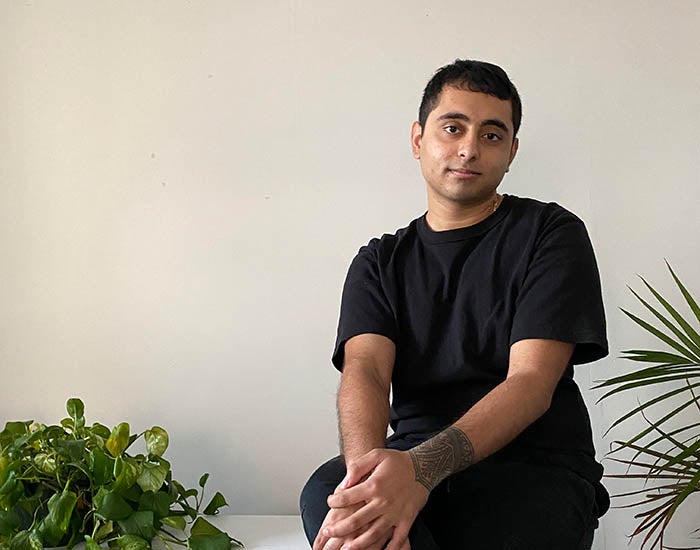
Research Opportunities
Students assist our faculty with important studies while gaining valuable research experience.
Communication majors are strongly encouraged to engage in research under the guidance of a faculty member. The interdisciplinary nature of the Communication field provides opportunities for students to explore a wide variety of topics using qualitative and/or quantitative skills that transfer not only to graduate school but to many industries. Students can also make valuable connections with faculty who can help mentor them as they make post-graduate plans.
How can I get involved in research?
Undergraduates new to research can begin by exploring the Center for Undergraduate Research and Fellowships (CURF) website. CURF provides valuable information about getting started in research, connecting with ongoing projects, and applying for grants or other research funding. CURF also provides valuable information about applying for undergraduate and post-graduate research fellowships. The College also offers resources for students interested in engaging in independent research on their undergraduate research website.
Here at Annenberg, students can participate in communications-related research in one of two ways:
- Pursuing independent research projects
- Participating in faculty research projects
Pursuing Independent Research Projects
Students usually begin by engaging in research and scholarship in research based Comm classes, but can also engage in independent projects:
- Students in any year can propose an independent study to be conducted under the supervision of a faculty mentor.
- Senior Comm majors can participate in the two-semester Honors or ComPS thesis course to conduct a primary research project from start to finish. Students are mentored by two faculty members.
- Students can also seek out fellowship opportunities that fund independent research and/or thesis research under faculty mentorship. See below under Funding for your Academic Research.
- Remember: All research begins at the library to assess the questions addressed by previous scholars and the findings of prior studies. All students should start their foray into research at the Annenberg School for Communication Library.
Participating in Faculty Research Projects
Annenberg faculty conduct important research in a number of intersecting and evolving research areas, such as Culture and Media, Global Communication, Health Communication, Media Institutions, Political Communication, and Technology and Society. These areas are further broken down into a wide variety of topics. Annenberg faculty research influences policy makers, government agencies, and public opinion.
Students can apply for available positions or contact individual professors to inquire about opportunities for undergraduates to assist in their research.
-
Open research assistant positions are often listed in CURF’s Research Directory (search “Annenberg” under schools).
-
First and second years can apply to assist faculty research through the Penn Undergraduate Research Mentoring Program (PURM).
-
Communication majors will periodically receive notices of available research opportunities from Annenberg.
-
Importantly, faculty who do not formally have positions open often welcome students to assist in their ongoing research projects. Students interested in assisting with research projects can contact professors whose work is most interesting to them to inquire about current opportunities.
-
While openings are not guaranteed, a number of centers at the Annenberg School have ongoing projects that regularly involve undergraduates as research assistants or undergraduate fellows. These include:
Funding for Your Academic Research
Numerous sources at Penn can provide funding for undergraduate research projects. Funding sources usually require detailed applications. Deadlines vary throughout the year.
- Fellowship opportunities and grants that fund independent research and/or thesis research under faculty mentorship include: Andrea Mitchell Center Undergraduate Research Grants, Jumpstart for Juniors, University Scholars, Wolf Humanities Research Fellowships, College House Research Fellowships, the Gelfman International Summer Fund, and The Alice Paul Center’s LGBTQ & Gender Studies Undergraduate Student Research Expense Grants. See CURF for additional details and opportunities.
- International opportunities for summer research can be found at Penn Global Research and Internship Program (GRIP).
- CAMRA Mellon Fellowships offer funding and mentorships for students interested in multi-modal scholarship over their junior and senior years. Students apply as sophomores.
Presenting and Publishing Your Academic Research
Undergraduates can present their research at Penn-affiliated events and at off campus conferences, such as:
-
CURF’s Undergraduate Research Symposium (Fall and Spring events)
-
Comm Honors and ComPS Thesis students present at a poster session each Spring
-
National Collegiate Research Conference (NCRC) hosted by Harvard College Undergraduate Research Association
Students can apply to the College of Arts and Sciences for Travel Grants to fund travel to present your research.
Student researchers can also apply to publish their work in journals for undergraduate research that are affiliated with Penn or other institutions, such as:
Still have questions about research?
Majors and prospective majors are encouraged to meet with Dr. Kim Woolf, Academic Advisor and Research Director for Undergraduate Studies, to discuss opportunities and approaches.

Dynamic, Rigorous, and Fulfilling
"The academic community I found at Annenberg has been incredibly supportive and engaging. The professors I’ve had are passionate about teaching and challenge their students to critically think and interrogate their beliefs. It makes for a major program that is dynamic, rigorous, and fulfilling for those interested in communication studies." —Akhil Vaidya C'22, Johns Creek, GA
